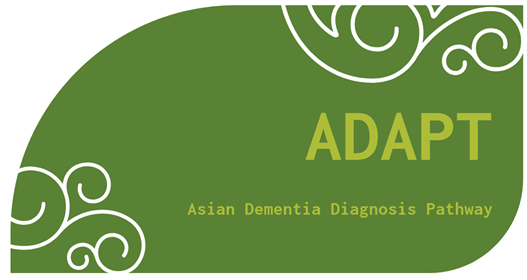The south Asian Dementia diAgnosis PaThway (ADAPT)
An online toolkit of enhanced interventions
Roughly 25,000 people from ethnic minority communities live with dementia in the UK. The largest single grouping are people whose origins are from South Asian countries. People from South Asian communities are at greater risk of developing dementia. However, they less likely to access all points of the dementia care pathway – and more likely to present in crisis and/or at a later stage in this community.
There are also differences in how people from south Asian communities use dementia services. Dementia symptoms are more likely to be missed or misinterpreted, they often have less access to NICE recommended treatments including medication, they are more likely to rely on local, ethnic group-led community organisations for support. All of these differences mean that south Asians with dementia are often disadvantaged compared to their white counterparts.

The ADAPT Study
In order to help statutory and voluntary sector organisations provide more equitable services, this project sets out to create an online toolkit of culturally appropriate assessments and interventions that support people from South Asian communities across the dementia care pathway.
Starting in January 2021 the aim of the study is to identify elements of the toolkit that can be drawn upon by commissioners, clinicians and care teams to meet the needs of people from South Asian communities who are living with dementia.
We plan to do this over the course of the next year in five work packages (WPs):
WP1 - Identify toolkit contents
We will conduct a rapid review of the literature and take our findings to online stakeholder discussions to identify what items to include in the toolkit
WP2 - Identify the implementation process
We will develop vignettes and use these in stakeholder discussions to identify best practice for small and large organisations to work together
WP3 - Create video testimonies
Video testimonies from stakeholders will enhance communication of the elements of the toolkit
WP4 – Creation of the toolkit
From data collected in WP1, 2 &3
WP5 – Disseminate and publicise the toolkit
Project members
Funding
The study is funded by the National Institute for Health Research - Research for Patient Benefit REF: NIHR200736
Acknowledgements
The views expressed on this website are those of the author(s) and not necessarily those of the NHS, the National Institute for Health Research or the Department of Health.
